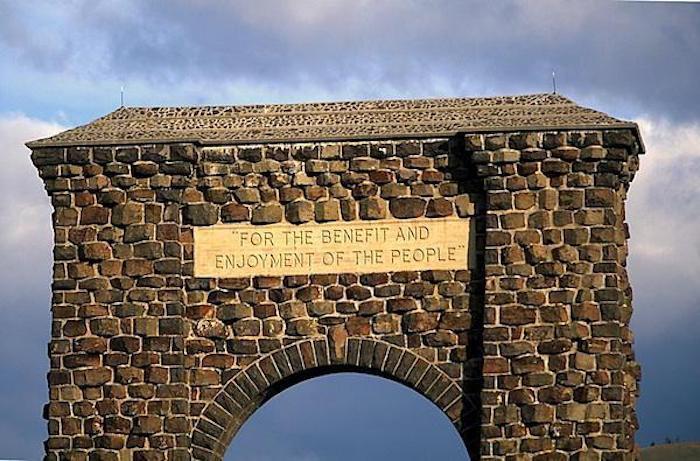
Time to comment on a proposal to more than double, in some cases, entrance fees to national parks during the busy summer season runs out Friday/NPS
Your time to comment on Interior Secretary Ryan Zinke's proposal to use a surge pricing system at 17 national parks in an effort to whittle away at the National Park System's estimated $11.3 billion maintenance backlog runs out Friday.
Under the proposal, peak-season entrance fees would be established at Arches, Bryce Canyon, Canyonlands, Denali, Glacier, Grand Canyon, Grand Teton, Olympic, Sequoia and Kings Canyon (two parks treated as one under this proposal), Yellowstone, Yosemite, and Zion national parks with peak season starting on May 1, 2018; in Acadia, Mount Rainier, Rocky Mountain, and Shenandoah starting on June 1, 2018; and in Joshua Tree National Park as soon as practicable in 2018.
The peak season for each park would include its busiest contiguous five-month period of visitation. The peak season entrance fee for a seven-day pass to each park would be $70 per private, non-commercial vehicle, $50 per motorcycle, and $30 per person on bike or foot. A park-specific annual pass for any of the 17 parks would be available for $75.
Many groups and some communities across the country have spoken out against the plan, which would more than double weekly entrance fees at parks such as Acadia, Yellowstone, Grand Canyon, and Rocky Mountain during their high summer seasons. While some of the opposition stems from the belief that surge pricing such as that described by the Interior secretary would in effect price some folks out of the parks, the Association of National Park Rangers also believes the pricing structure could raise safety issues.
"Park visitors have been expressing frustration over issues including high fees, long lines, lack of parking and lack of staff. There have been incidents of fee collectors and visitor center staff being yelled at and harassed over these issues," the association said in speaking out against the proposal. "In many units of the National Park System, ranger staffing levels have been declining while visitor use has been increasing. Many parks hire seasonal employees during peak season. The fee increase may shift visitor use to off-peak seasons when fewer staff members are available to assist visitors, or it may encourage people to purchase the $80 Annual Pass and increase visitation, further overwhelming existing facilities and staff in some of the proposed parks at the same time park operations budgets are proposed to be cut."
The ranger association also pointed out that national parks are more than just outlets for human recreation, and as such Congress has an obligation to properly fund them.
"We are concerned that a proposal to triple the fees at certain parks assumes that National Park System areas are primarily recreation sites that might be eventually largely financed by visitor receipts. However, more than just recreation sites, these are places that preserve, by law, our natural and cultural heritage for present and future generations," the association said. "Many values are protected in our national parks, including outstanding wildlife, wilderness, recreation, and historic resources that are the envy of the world. They provide an important 'window' into our past and future that must be preserved.
"The Association of National Park Rangers wants to keep our national treasures accessible, protected, and safe for all visitors, and believes they ought to be managed primarily with federal tax revenues, with an additional limited contribution of fees from the people who visit in a given year," the group concluded. "We look forward to working with the (Trump) Administration to solve the issues that arise and to ensure the protection of our national parks for future generations."
To add your thoughts to the Interior secretary's proposal, visit this site before the end of the day Friday.



Comments
The issue is clearly about priority. Right now, our society is lead by those who prize military over infrastructure, lining the pockets of the rich over child care and education, and rampant development over preserving and sustaining our natural resources. The current degradation of your park system is a canary in the coal mine. Wake up America and understand what a true conservative is.
I am all for raising fees as it will raise the experience level for all visiting. This to me is a no brainer. Think about how much money people spend for movies, sporting events, etc. While you are at it, please raise fees for non US residents
I am for a modest increase, something less than what is being proposed. What I would like to see is a huge increase in what it costs people from foreign lands. The overcrowding and the consequencial damage to the infastructure I see each and every year (and increasing each and every year) is from bus loads of foreigners. As a US Citizen I pay my share every pay check as well as the entrance fees. What do they pay? If I must choose whether it is afforable for foreigners or Americans I choose US. If they choose to come they are welcome but they must pay their fair share and stand up for the costs that their shear volume creates.